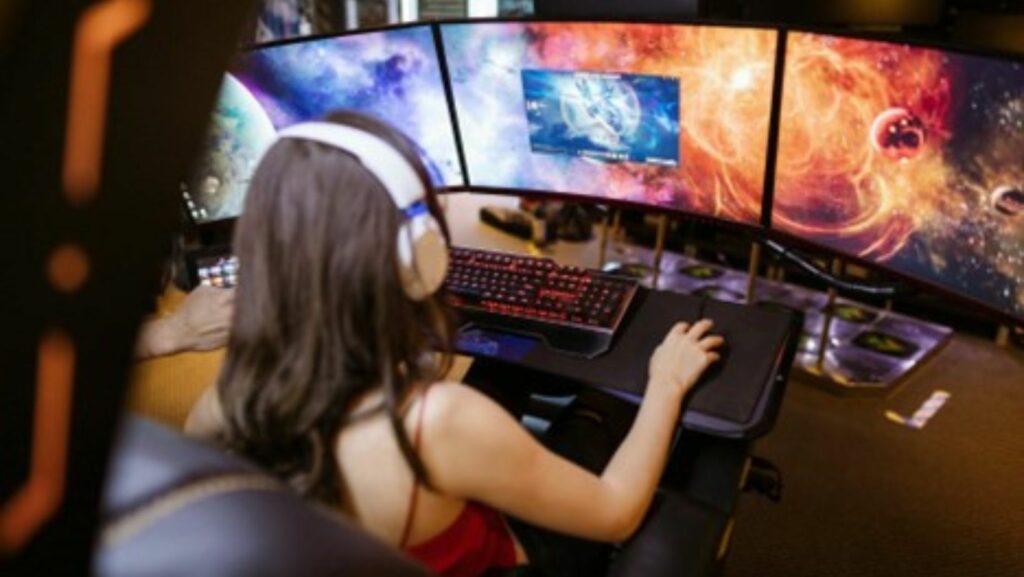
The gaming industry has evolved significantly over the years, merging innovative technology with the unbridled passion of gamers worldwide. This article delves into the key aspects of this dynamic landscape, from the competitive spirit driving esports to the technological advancements shaping the future of gaming.
The Rise of Competitive Gaming
Competitive gaming has come a long way since the days of arcade halls. Today, esports tournaments attract millions of viewers and offer substantial prize pools. For instance, the 2021 Dota 2 International had a prize pool exceeding $40 million, with the winning team, Team Spirit, taking home over $18 million. This growth has turned esports into a billion-dollar industry, drawing in sponsorships from major brands and creating opportunities for professional gamers.
Gamers’ passion for competition and excellence drives the esports industry. Players like Faker in League of Legends and S1mple in Counter-Strike: Global Offensive have become icons, inspiring millions with their skill and dedication. This passion is reflected in the communities built around games, where fans and players share strategies, celebrate victories, and support their favorite teams.
Technological Advancements in Gaming
Advancements in graphics and processing power have transformed gaming experiences. Modern games boast photorealistic graphics and complex physics engines, providing immersive experiences that were unimaginable a decade ago. For example, games like Red Dead Redemption 2 and Cyberpunk 2077 highlight the industry’s pinnacle of graphical fidelity and storytelling.
Virtual reality (VR) and augmented reality (AR) are revolutionizing how we interact with games. VR headsets like the Oculus Rift and PlayStation VR offer players unprecedented immersion, allowing them to step into virtual worlds. AR games like Pokémon blend the digital and physical worlds, creating new opportunities for interactive gameplay.
The Future of Gaming Technology
Cloud gaming services like Google Stadia, NVIDIA GeForce Now, and Xbox Cloud Gaming (formerly Project xCloud) are set to change how we access games. These platforms allow players to stream games directly to their devices, eliminating the need for high-end hardware. With advancements in internet speeds and reduced latency, cloud gaming is becoming a viable option for gamers worldwide.
Artificial intelligence (AI) is enhancing game development and player experiences. AI-driven algorithms can create more realistic NPC behaviors, generate complex game worlds, and personalize gameplay experiences. For example, AI in games like The Last of Us Part II enhances enemy behavior, making the game more challenging and engaging.
The Role of Streaming and Content Creation
Streaming platforms like Twitch and YouTube Gaming have become central to the gaming community. Streamers and content creators are crucial in promoting games, engaging with audiences, and building communities. Popular streamers like Ninja and Pokimane have millions of followers and generate substantial revenue through subscriptions, donations, and sponsorships.
Content creators influence game development and marketing strategies. Their feedback and critiques can shape game updates, patches, and new releases. Developers often collaborate with popular streamers to reach wider audiences and generate hype for upcoming games.
Gaming Communities and Social Interaction
Online gaming communities offer a sense of belonging and camaraderie. Platforms like Discord and Reddit allow gamers to discuss strategies, share experiences, and form friendships. These communities are integral to the gaming experience, fostering social interaction and collaboration.
Gaming is no longer a solitary activity. Multiplayer games like Fortnite, Apex Legends, and Among Us emphasize teamwork and communication, encouraging players to connect with friends and strangers. This social aspect of gaming enhances the overall experience and builds lasting connections.
Economic Impact of the Gaming Industry
The gaming industry is a major economic driver, creating jobs and generating significant revenue. In 2020, the global gaming market was valued at over $159 billion, surpassing the combined income of the film and music industries. The industry supports millions of jobs, from game developers and designers to marketers and esports professionals.

Conclusion
The intersection of technology and passion continues to drive the evolution of the gaming industry. From advancements in graphics and AI to the rise of esports and content creation, gaming remains at the forefront of innovation. As technology progresses and the community grows, the future of gaming promises even more exciting developments and opportunities for gamers worldwide.
With ongoing technological advancements and gamers’ unwavering passion, the gaming industry’s future looks brighter than ever. The integration of new technologies, the expansion of competitive gaming, and the growth of online communities ensure that gaming will remain a dynamic and influential part of global culture.













